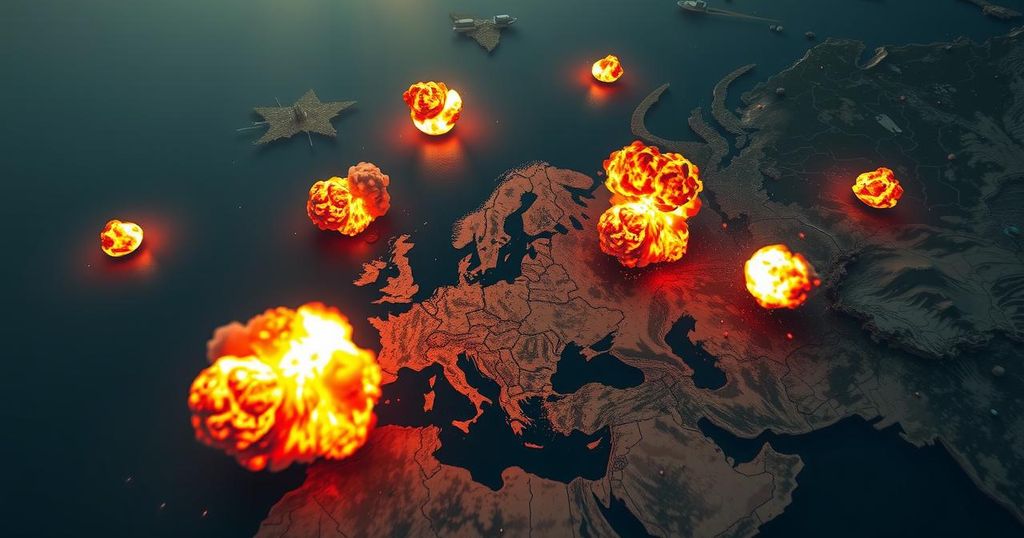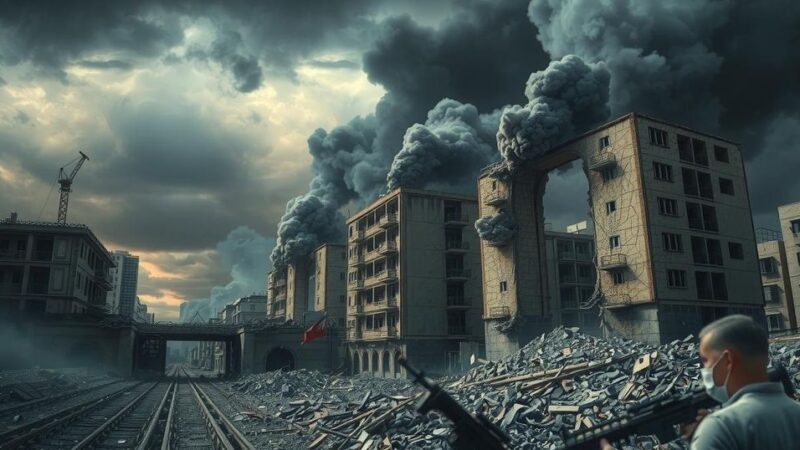Israel has reportedly launched military strikes targeting Iranian facilities in Tehran amidst ongoing conflicts in Gaza and Lebanon. These operations, described by Israeli officials as necessary retaliatory actions against Iranian aggression, highlight an escalating cycle of violence perceived by peace advocacy groups as a potential precursor to broader regional conflict. The humanitarian implications are substantial, with immense casualty figures and calls for U.S. intervention or moderation.
On Saturday, Israel escalated military action by targeting Iranian assets, conducting strikes that reportedly hit locations in and around Tehran, including at Imam Khomeini International Airport and the headquarters of the Islamic Revolutionary Guards Corps (IRGC). These attacks followed ongoing conflicts in Gaza and Lebanon and were characterized by Israeli officials as necessary responses to continuous assaults from Iranian forces since October 7th. Rear Adm. Daniel Hagari of the Israel Defense Forces stated, “In response to months of continuous attacks from the regime in Iran against the state of Israel—right now the IDF is conducting precise strikes on military targets in Iran.” This attack aligns with a broader military engagement that Israel has with a variety of adversaries, encompassing Palestine, Lebanon, Iran, Syria, and Iraq. Casualty figures from recent Israeli operations reveal over 153,000 individuals affected in Palestine alone, alongside significant humanitarian crises in Lebanon. U.S. officials confirmed that they were informed of these strikes, while peace advocacy groups in America have voiced concerns about the potential for further escalation in the region. Massachusetts Peace Action executive director Brian Garvey cautioned against U.S. involvement, cautioning that it contravenes President Biden’s aims to prevent regional conflict. The dynamics appear to illustrate a precarious balance of international relations in the Middle East, indicating that multiple stakeholders must navigate the complexities of military actions that threaten broader peace efforts.
The geographical and political landscape of the Middle East is fraught with conflicts that have continued to evolve over decades. Israel has consistently faced operations originating from Iranian soil, and the recent escalation of hostilities is symptomatic of longstanding tensions between Israel and Iran, particularly amid allegations of Iranian support for regional militant groups. The context of military engagements in Gaza, Lebanon, and beyond has further complicated these inequalities, prompting reactions from global peace organizations calling for de-escalation and dialogue. It is pivotal to note that such military actions and their potential consequences resonate significantly with U.S. policy and engagement in the region, raising questions about the responsibilities of international actors in mitigating conflict.
In conclusion, the recent attacks by Israel on Iranian targets, coupled with ongoing conflicts in neighboring territories, underscore a significant escalation in military operations within the Middle East. The reported casualty figures reflect a dire humanitarian situation, raising alarms among peace organizations regarding the implications for regional stability. U.S. involvement, or lack thereof, remains critical to addressing the unfolding crisis and could set the stage for future diplomatic efforts aimed at achieving a ceasefire and fostering a more peaceful resolution to the ongoing conflicts. The discourse surrounding military actions, responses, and international mediation will represent a crucial aspect of international relations in the coming months.
Original Source: www.commondreams.org






